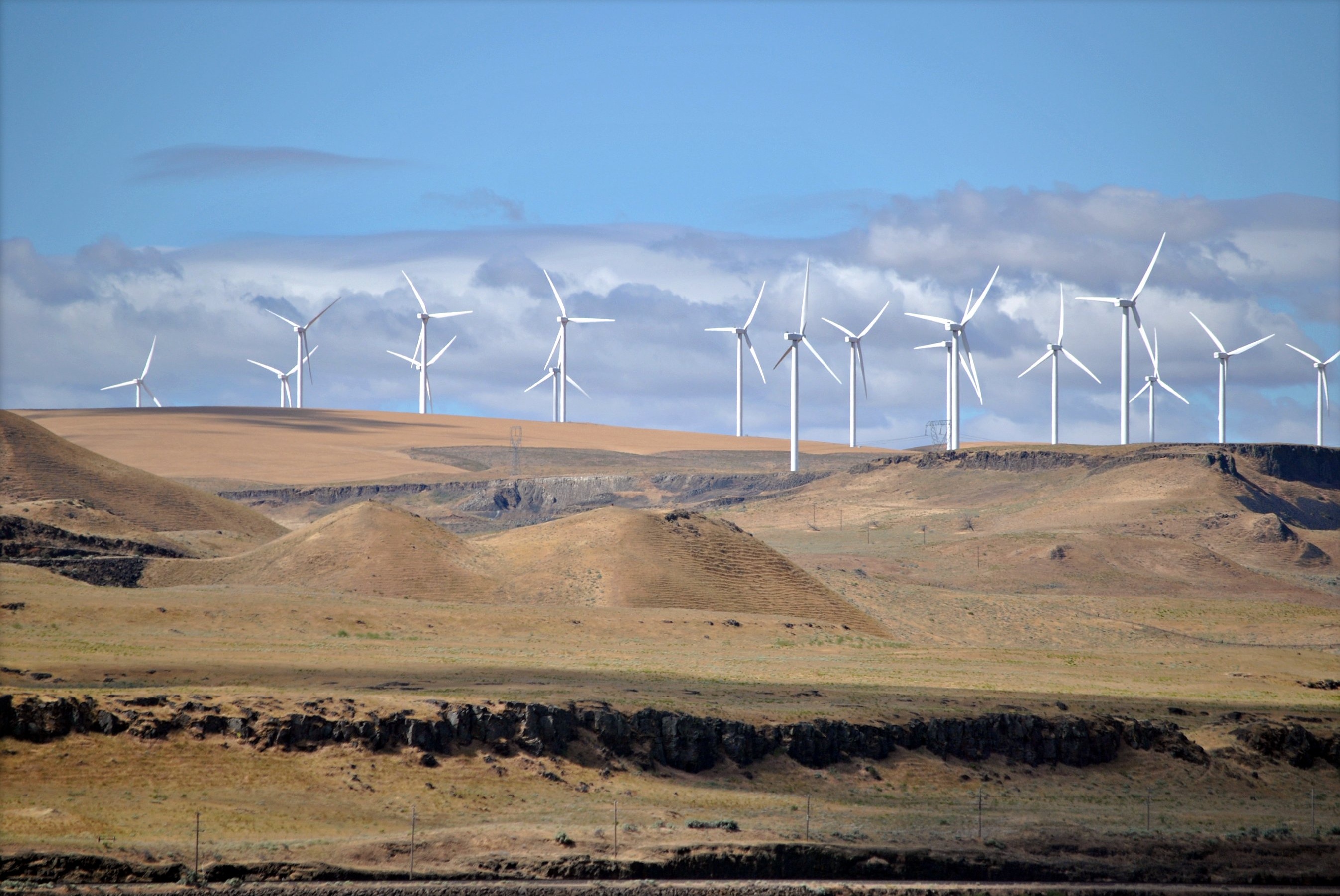|
Fraunhofer Institute For Solar Energy Systems
The Fraunhofer Institute for Solar Energy Systems ISE (or Fraunhofer ISE) is an institute of the Fraunhofer-Gesellschaft. Located in Freiburg, Germany, The Institute performs applied scientific and engineering research and development for all areas of solar energy. Fraunhofer ISE has three external branches in Germany which carry out work on solar cell and semiconductor material development: the Laboratory and Service Center (LSC) in Gelsenkirchen, the Technology Center of Semiconductor Materials (THM) in Freiberg, and the Fraunhofer Center for Silicon Photovoltaics (CSP) in Halle. Since 2006, Prof. Dr. Eicke R. Weber is the director of Fraunhofer ISE. With over 1,100 employees, Fraunhofer ISE is the largest institute for applied solar energy research in Europe. The 2012 Operational Budget including investments is 74.3 million euro. History Fraunhofer ISE was founded in 1981 by Adolf Goetzberger in Freiburg, Germany. It was the first non-university establishment for applied ... [...More Info...] [...Related Items...] OR: [Wikipedia] [Google] [Baidu] |
Fraunhofer Society
The Fraunhofer Society (german: Fraunhofer-Gesellschaft zur Förderung der angewandten Forschung e.V., lit=Fraunhofer Society for the Advancement of Applied Research) is a German research organization with 76institutes spread throughout Germany, each focusing on different fields of applied science (as opposed to the Max Planck Society, which works primarily on basic science). With some 29,000 employees, mainly scientists and engineers, and with an annual research budget of about €2.8billion, it is the biggest organization for applied research and development services in Europe. Some basic funding for the Fraunhofer Society is provided by the state (the German public, through the federal government together with the states or ''Länder'', "owns" the Fraunhofer Society), but more than 70% of the funding is earned through contract work, either for government-sponsored projects or from industry. It is named after Joseph von Fraunhofer who, as a scientist, an engineer, and an entr ... [...More Info...] [...Related Items...] OR: [Wikipedia] [Google] [Baidu] |
Freiburg Im Breisgau
Freiburg im Breisgau (; abbreviated as Freiburg i. Br. or Freiburg i. B.; Low Alemannic German, Low Alemannic: ''Friburg im Brisgau''), commonly referred to as Freiburg, is an independent city in Baden-Württemberg, Germany. With a population of about 230,000 (as of 31 December 2018), Freiburg is the List of cities in Baden-Württemberg by population, fourth-largest city in Baden-Württemberg after Stuttgart, Mannheim, and Karlsruhe. The population of the Freiburg metropolitan area was 656,753 in 2018. In the Southern Germany, south-west of the country, it straddles the Dreisam river, at the foot of the Schlossberg (Freiburg), Schlossberg. Historically, the city has acted as the hub of the Breisgau region on the western edge of the Black Forest in the Upper Rhine Plain. A famous old German university town, and Roman Catholic Archdiocese of Freiburg, archiepiscopal seat, Freiburg was incorporated in the early twelfth century and developed into a major commercial, intellectual, an ... [...More Info...] [...Related Items...] OR: [Wikipedia] [Google] [Baidu] |
Research And Development
Research and development (R&D or R+D), known in Europe as research and technological development (RTD), is the set of innovative activities undertaken by corporations or governments in developing new services or products, and improving existing ones. Research and development constitutes the first stage of development of a potential new service or the production process. R&D activities differ from institution to institution, with two primary models of an R&D department either staffed by engineers and tasked with directly developing new products, or staffed with industrial scientists and tasked with applied research in scientific or technological fields, which may facilitate future product development. R&D differs from the vast majority of corporate activities in that it is not intended to yield immediate profit, and generally carries greater risk and an uncertain return on investment. However R&D is crucial for acquiring larger shares of the market through the marketisation ... [...More Info...] [...Related Items...] OR: [Wikipedia] [Google] [Baidu] |
Solar Energy
Solar energy is radiant light and heat from the Sun that is harnessed using a range of technologies such as solar power to generate electricity, solar thermal energy (including solar water heating), and solar architecture. It is an essential source of renewable energy, and its technologies are broadly characterized as either passive solar or active solar depending on how they capture and distribute solar energy or convert it into solar power. Active solar techniques include the use of photovoltaic systems, concentrated solar power, and solar water heating to harness the energy. Passive solar techniques include orienting a building to the Sun, selecting materials with favorable thermal mass or light-dispersing properties, and designing spaces that naturally circulate air. The large magnitude of solar energy available makes it a highly appealing source of electricity. In 2020 solar energy has been the cheapest source of Electricity. In Saudi Arabia a power purchase agreemen ... [...More Info...] [...Related Items...] OR: [Wikipedia] [Google] [Baidu] |
Gelsenkirchen
Gelsenkirchen (, , ; wep, Gelsenkiärken) is the 25th most populous city of Germany and the 11th most populous in the state of North Rhine-Westphalia with 262,528 (2016) inhabitants. On the Emscher River (a tributary of the Rhine), it lies at the centre of the Ruhr, the largest urban area of Germany, of which it is the fifth largest city after Dortmund, Essen, Duisburg and Bochum. The Ruhr is located in the Rhine-Ruhr Metropolitan Region, one of Europe's largest urban areas. Gelsenkirchen is the fifth largest city of Westphalia after Dortmund, Bochum, Bielefeld and Münster, and it is one of the southernmost cities in the Low German dialect area. The city is home to the football club Schalke 04, which is named after . The club's current stadium Veltins-Arena, however, is located in . Gelsenkirchen was first documented in 1150, but it remained a tiny village until the 19th century, when the Industrial Revolution led to the growth of the entire area. In 1840, when the m ... [...More Info...] [...Related Items...] OR: [Wikipedia] [Google] [Baidu] |
Halle, Saxony-Anhalt
Halle (Saale), or simply Halle (; from the 15th to the 17th century: ''Hall in Sachsen''; until the beginning of the 20th century: ''Halle an der Saale'' ; from 1965 to 1995: ''Halle/Saale'') is the largest city of the German state of Saxony-Anhalt, the fifth most populous city in the area of former East Germany after (East) Berlin, Leipzig, Dresden and Chemnitz, as well as the 31st largest city of Germany, and with around 239,000 inhabitants, it is slightly more populous than the state capital of Magdeburg. Together with Leipzig, the largest city of Saxony, Halle forms the polycentric Leipzig-Halle conurbation. Between the two cities, in Schkeuditz, lies Leipzig/Halle International Airport. The Leipzig-Halle conurbation is at the heart of the larger Central German Metropolitan Region. Halle lies in the south of Saxony-Anhalt, in the Leipzig Bay, the southernmost part of the North German Plain, on the River Saale (a tributary of the Elbe), which is the third longest river flo ... [...More Info...] [...Related Items...] OR: [Wikipedia] [Google] [Baidu] |
Adolf Goetzberger
Adolf Goetzberger (born 29 November 1928 in Munich) is a German physicist. Life Goetzberger studied physic in Munich, Germany. He finished his university studies with a work over ''Über die Kristallisation aufgedampfter Antimonschichten''. He worked together with William Shockley in Palo Alto, California and for company Bell Labs. In 1981, Goetzberger founded Fraunhofer Institute for Solar Energy Systems ISE in Freiburg im Breisgau. Awards * J J Ebers Award * European Inventor Award * Doctor honoris by University of Freiburg, 1971 * honorary doctorate from the Faculty of Science and Technology at Uppsala University, Sweden, 1995 * Karl Boer medaille, 1997 * Becquerel Prize, 1997 * William R. Cherry Award, 1997 * Einstein Award, 2006 * European Solar Award, 2009 * Officers Cross of the Order of Merit of the Federal Republic of Germany * Order of Merit of Baden-Württemberg References External links Fraunhofer Institute for Solar Energy Systems ISE: Solarpionier und G ... [...More Info...] [...Related Items...] OR: [Wikipedia] [Google] [Baidu] |
100% Renewable Energy
100% renewable energy means getting all energy from renewable resources. The endeavor to use 100% renewable energy for electricity, heating, cooling and transport is motivated by climate change, pollution and other environmental issues, as well as economic and energy security concerns. Shifting the total global primary energy supply to renewable sources requires a transition of the energy system, since most of today's energy is derived from non-renewable fossil fuels. Research into this topic is fairly new, with very few studies published before 2009, but has gained increasing attention in recent years. The majority of studies show that a global transition to 100% renewable energy across all sectors – power, heat, transport and desalination – is feasible and economically viable. A cross-sectoral, holistic approach is seen as an important feature of 100% renewable energy systems and is based on the assumption "that the best solutions can be found only if one focuses ... [...More Info...] [...Related Items...] OR: [Wikipedia] [Google] [Baidu] |
International Energy Agency
The International Energy Agency (IEA) is a Paris-based autonomous intergovernmental organisation, established in 1974, that provides policy recommendations, analysis and data on the entire global energy sector, with a recent focus on curbing carbon emissions and reaching global climate targets, including the Paris Agreement. The 31 member countries and 11 association countries of the IEA represent 75% of global energy demand. The IEA was set up under the framework of the Organisation for Economic Co-operation and Development (OECD) in the aftermath of the 1973 oil crisis to respond to physical disruptions in global oil supplies, provide data and statistics about the global oil market and energy sector, promote energy savings and conservation, and establish international technical collaboration on innovation and research. Since its founding, the IEA has also coordinated use of the oil reserves that its members are required to hold. In subsequent decades, the IEA's role expanded t ... [...More Info...] [...Related Items...] OR: [Wikipedia] [Google] [Baidu] |
University Of Freiburg
The University of Freiburg (colloquially german: Uni Freiburg), officially the Albert Ludwig University of Freiburg (german: Albert-Ludwigs-Universität Freiburg), is a public university, public research university located in Freiburg im Breisgau, Baden-Württemberg, Germany. The university was founded in 1457 by the House of Habsburg, Habsburg dynasty as the second university in Austrians, Austrian-Habsburg territory after the University of Vienna. Today, Freiburg is the List of universities in Germany#Universities by date of establishment, fifth-oldest university in Germany, with a long tradition of teaching the humanities, social sciences and natural sciences and technology and enjoys a high academic reputation both nationally and internationally. The university is made up of 11 faculty (division), faculties and attracts students from across Germany as well as from over 120 other countries. Foreign students constitute about 18.2% of total student numbers. The University of Fr ... [...More Info...] [...Related Items...] OR: [Wikipedia] [Google] [Baidu] |
Applied Sciences
Applied science is the use of the scientific method and knowledge obtained via conclusions from the method to attain practical goals. It includes a broad range of disciplines such as engineering and medicine. Applied science is often contrasted with basic science, which is focused on advancing scientific theories and laws that explain and predict events in the natural world. Applied science can also apply formal science, such as statistics and probability theory, as in epidemiology. Genetic epidemiology is an applied science applying both biological and statistical methods. Applied research Applied research is the practical application of science. It accesses and uses accumulated theories, knowledge, methods, and techniques, for a specific state-, business-, or client-driven purpose. Applied Research can be better understood in any area when contrasting it with, basic, or pure, research. Basic geography research strives to create new theories and methods that aid in the expl ... [...More Info...] [...Related Items...] OR: [Wikipedia] [Google] [Baidu] |
_4029.jpg)




